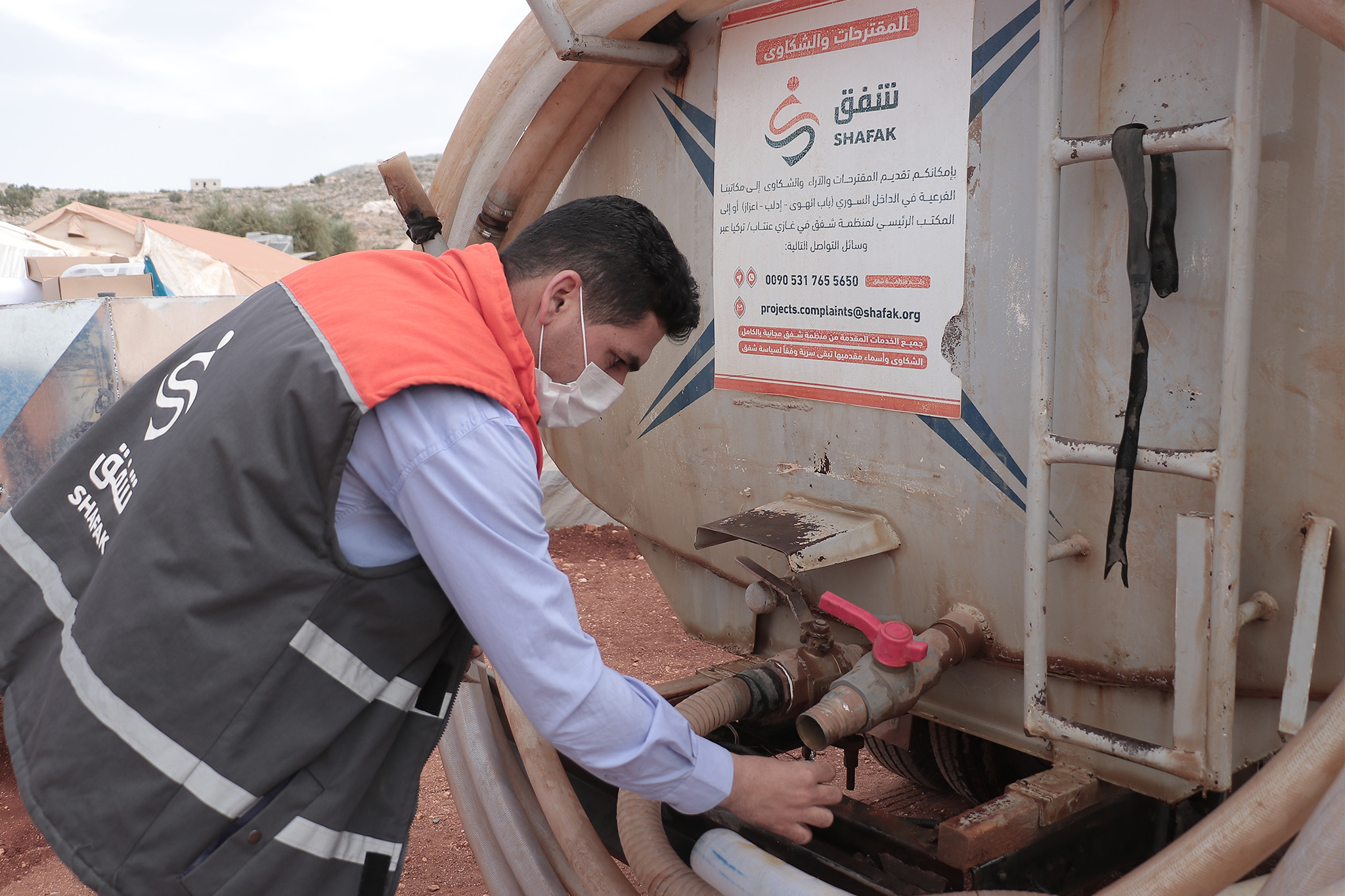
The project aims to provide better access to water, sanitation and hygiene services. Vulnerable women, men, girls and boys affected by acute emergencies in northwest Syria. We work to provide water and sanitation services in 37 camps in northwest Syria (water delivery by tankers, technical suction, waste collection Solid State, rehabilitation and construction of toilet blocks, distributing garbage containers, distributing and rehabilitating drinking water tanks and conducting awareness sessions to raise awareness among beneficiaries), in addition to supporting four villages in Idlib (Hazanu, Hafsarja, Nakhla Church and Al-Mastouma), and three villages in the Azaz area in the countryside Aleppo (Dabiq, Shamarin and Ziyadiyah) by supporting water stations at the operating cost and paying workers’ salaries, in addition to supporting the hygiene sector represented by supporting municipalities at operational costs and supporting workers’ salaries (cash for work), and rehabilitating water networks and sewage lines in these areas according to need, Rehabilitation of landfills in these areas until they are in a condition suitable for use by the people and local councils.
Through this project we are working on:
Providing basic services in the water, sanitation and hygiene sector in 37 camps.
Rehabilitation of water networks and sewage systems in 7 regions in northwestern Syria.
Rehabilitation of water stations in addition to supporting the stations at the operational cost.
Supporting municipalities with operating costs and workers’ salaries in 7 areas under the solid waste management and support sector.
Rehabilitation of landfills in 7 regions in northwestern Syria.
Work areas: Idlib: Harem – Ma’ar Tamsrin – Jisr al-Shughur – Armanaz.
The population in the targeted areas suffers from problems with safe access to water services, as most people rely on buying water from tankers to meet their needs, but the sources used are not safe due to the lack of tests for the water source and the lack of chlorine added to purify the water. Diseases also spread in some areas as a result of a lack of hygiene facilities, which causes wrong health practices, such as the spread of open defecation or the use of unsafe places made of fabrics and the remains of tents to meet their needs, as a result of the fact that most of the bathroom blocks are out of service and need rehabilitation, and some of the camps need to build new blocks. The spread of water-related diseases was also observed due to the lack of safe disposal of organic and solid waste within the camps, in particular, and in the targeted areas in general.
